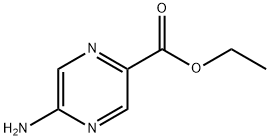When uncovering acetone applications based on its properties, questions abound. Given its high volatility, where is it utilized for quick - drying purposes? How does its solubility in both polar and non - polar substances enable unique uses in industries? And due to its flammability, in what chemical processes does it serve as a fuel or reactant? Answering these reveals diverse acetone applications.
What Is Acetone Used For? Uncovering Applications Based on Its Properties
Related Products More >
-
- 96-26-4
- CNY Request For Quotation
-
- 96-26-4
- CNY Request For Quotation
-
- CNY Request For Quotation
-
- CNY Request For Quotation
-
- 67-64-1
- CNY 2000.0000
- 1ton
-
- 51364-51-3
- Request For Quotation
- 100g
-
- 51364-51-3
- Request For Quotation
- 10g
-
- 51364-51-3
- Request For Quotation
- 1kg



 沪ICP备2021018848号-5
沪ICP备2021018848号-5

Now, let's talk about its solubility in both polar and non - polar substances. This unique property makes acetone an amazing solvent. In the pharmaceutical industry, it's used to dissolve a wide range of drugs during the manufacturing process. Some drugs are made up of both polar and non - polar components, and acetone can dissolve them all. This helps in creating homogeneous drug formulations. In the electronics industry, acetone is used to clean circuit boards. It can dissolve both the polar contaminants like salts and the non - polar ones like oils. So, it's really effective in getting rid of all kinds of dirt and grime from the delicate electronics.
When it comes to acetone's flammability, it has some interesting applications too. In certain chemical processes, it can serve as a fuel. For example, in some small - scale chemical reactors, where a quick - burning and easily - controlled fuel is needed, acetone can be used. It burns cleanly and provides a good amount of energy. Also, in some organic synthesis reactions, acetone acts as a reactant. It can react with other chemicals to form new compounds. For instance, in the production of some plastics, acetone might be one of the starting materials. It reacts with other monomers to create long - chain polymers that make up the plastic. So, as you can see, acetone's properties of high volatility, solubility, and flammability give it a wide range of applications in different industries. Whether it's helping your nails dry faster or being a crucial part in making high - tech electronics or new materials, acetone is really versatile.
And let's not forget about its solubility in both polar and non-polar substances. This is a real game-changer in industries. It means acetone can act as a bridge between different types of materials. In the textile industry, for example, it's used to dissolve and remove waxes and oils from fabrics, making them cleaner and more receptive to dyes. In paint manufacturing, acetone helps to create a smooth, even finish by ensuring that all the ingredients mix well together.
Then there's acetone's flammability. While it might sound dangerous, this property actually makes it quite useful in certain chemical processes. It can serve as a fuel, providing the necessary energy to drive reactions forward. In some cases, it's even used as a reactant itself, helping to create new compounds. You'll find it in processes like the production of plastics, where it plays a crucial role in the polymerization reaction.
So, as you can see, acetone's properties really do open up a world of diverse applications. From quick-drying nail polish removers to industrial processes, this versatile chemical is a real workhorse in many different fields.
Now, let’s talk about its solubility. Acetone is like the ultimate middleman—it can dissolve both polar and non-polar substances. This makes it super versatile in industries. For example, in the pharmaceutical industry, it’s used to dissolve both water-soluble and fat-soluble compounds, which is crucial for making medications. In the cosmetics industry, it’s used to mix ingredients that wouldn’t normally play well together, like oils and water. It’s also a big deal in the chemical industry, where it’s used as a solvent for plastics, resins, and synthetic fibers.
Finally, let’s not forget about acetone’s flammability. While this might sound like a downside, it’s actually useful in certain chemical processes. Acetone can be used as a fuel in some specialized applications, like in certain types of lamps or as a component in some fuel mixtures. It’s also used as a reactant in chemical synthesis. For example, it’s involved in the production of methyl methacrylate, which is used to make plexiglass. Its flammability means it can release a lot of energy when it reacts, making it useful in processes that need a quick burst of heat or energy.
So, to sum it up, acetone’s volatility makes it great for quick-drying applications, its solubility makes it a versatile solvent in industries, and its flammability allows it to be used as a fuel or reactant in chemical processes. It’s a jack-of-all-trades chemical with a wide range of uses!